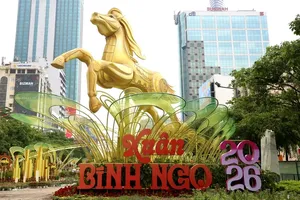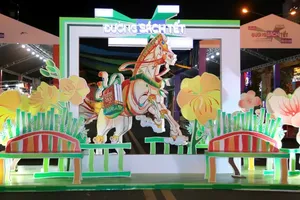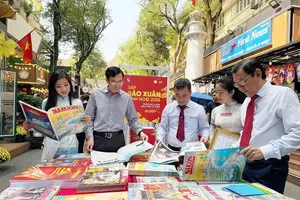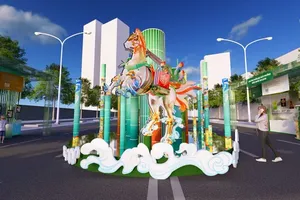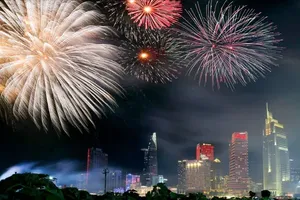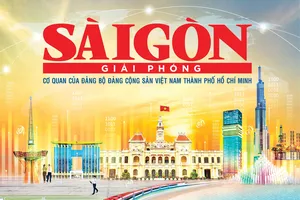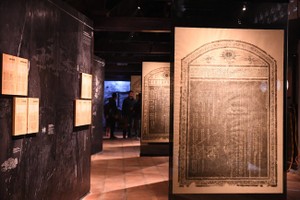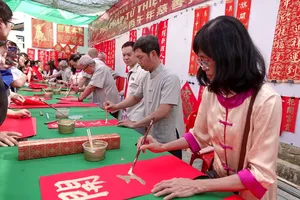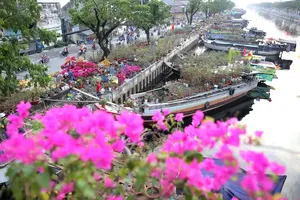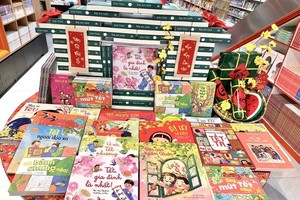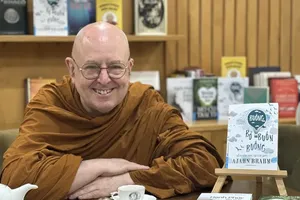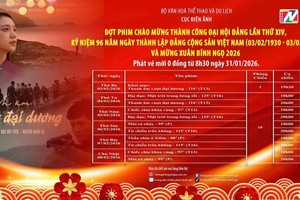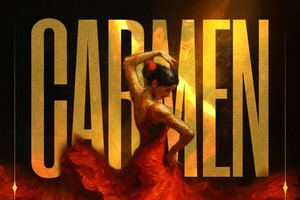However, insiders are concerned about theater scripts which currently have a lack of quality in literature.
An imprint of literary scripts
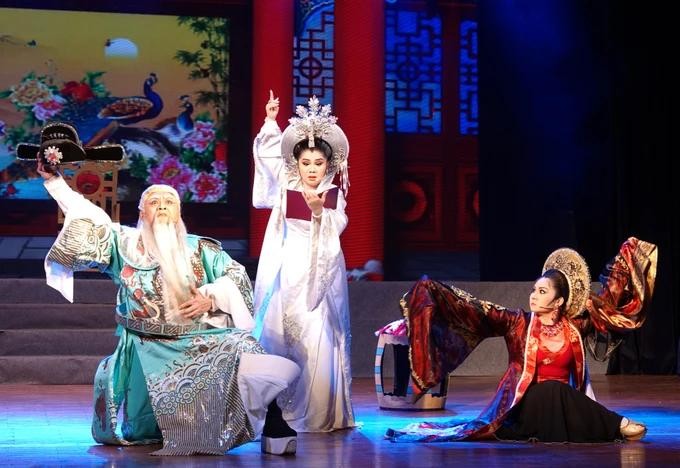
About two decades after 1975, theaters in HCMC saw a bustling atmosphere with many famous cai luong plays such as Tieng Trong Me Linh (The Sounds of Me Linh Drum), Thai Hau Duong Van Nga (Queen Mother Duong Van Nga), Doi Co Luu (Life of Ms. Luu), Kieu Nguyet Nha, Ben Cau Det Lua (Weaving on the Bridge), Bong Toi va Anh Sang (Shadow and Light), Cay Sau Rieng Tro Bong (Durian trees are blooming), Tim Lai Cuoc Doi (Finding Life Again) and more. They were written by well-known playwrights namely Nam Chau, Vien Chua, Ha Trieu, Hoa Phuong, Thu An, Loan Thao, Dieu Huyen, Hoang Kham, Ngoc Linh, Nguyen Phuong Nhi, Nhi Kieu, The Ha Van, The Chau, Minh To, Thanh Tong, Yen Lang, Nguyen Thao, Thanh Dien and others.
In addition, many scriptwriters from the South gathering in the North contributed many valuable plays in terms of content, ideology, literary quality, and aesthetics to the stages, such as To Hien Thanh’s Justice, Princess Ngoc Han, To Anh Nguyet, Ma Nguu’s case and more.
There is also a new generation of promising playwrights likely Dang Minh, Nhut Nuong, Hoang Song Viet, Anh Kiet, Lam Tuyen, Hung Dung, and To Thien Kieu. They have continued to create new works to meet the performance demands of theaters to serve audiences, especially private stages that are rapidly growing. At this period, the scripts were always rich in literature and featured humanistic messages, leaving a beautiful impression on the audience, said Dr. Do Quoc Dung, an expert in Southern music and theater.
Changing and improving creativity
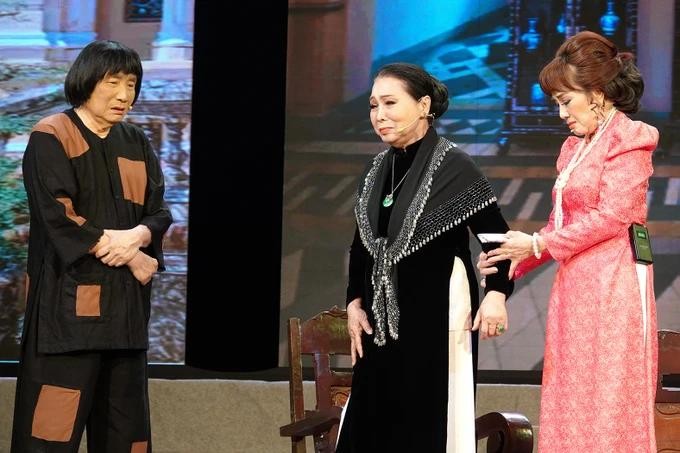
In the late 1990s, cai luong theater began losing its popularity and attracted smaller audiences. The number of playwrights . As a result, most cai luong performances currently being staged use scripts adapted from dramas or revived old scripts from 30-40 years ago to be staged and performed in a new style.
People's Artist, director Tran Ngoc Giau, Chairman of the HCMC Theater Association said that the decline in the number of scriptwriters in the last 20 years is the main reason for cai luong theaters have gradually lost their audiences. In addition, there is a shortage of works that reflect contemporary life, and cai luong songs that must be spread among common people to attract devotees.
According to playwright Vo Tu Uyen, a literary script must deliver a message and convincingly resolve that message through the characters' fates, while also conveying that intention to the audience. Therefore, a script must meet the following criteria consisting of a theme that guides people towards the beauty of truth, goodness, and beauty; content that conveys the message to be delivered to the audience through the characters' fates, dialogue, songs, and music.
In addition, scriptwriters must self-study because there aren’t professional playwriting and scriptwriting schools or training courses. There’s currently a growing trend of creating and performing cai luong works based on historical themes. Young authors are very eager to write works on this topic. However, many have made mistakes due to their lack of knowledge and the use of false information on social media.
People's Artist, director Tran Ngoc Giau, Chairman of the HCMC Theater Association hoped to digitize the works of famous cai luong playwrights such as Ha Trieu, Hoa Phuong, The Ha Van, Kien Giang, Dieu Huyen, Tran Ha and others to preserve the works and prevent distortions as well as provide the future generations with a valuable resource for learning and building upon the achievements of the past. The HCMC Theater Association will organize an event to honor playwrights for their outstanding contributions to the development of theater in the coming time.



